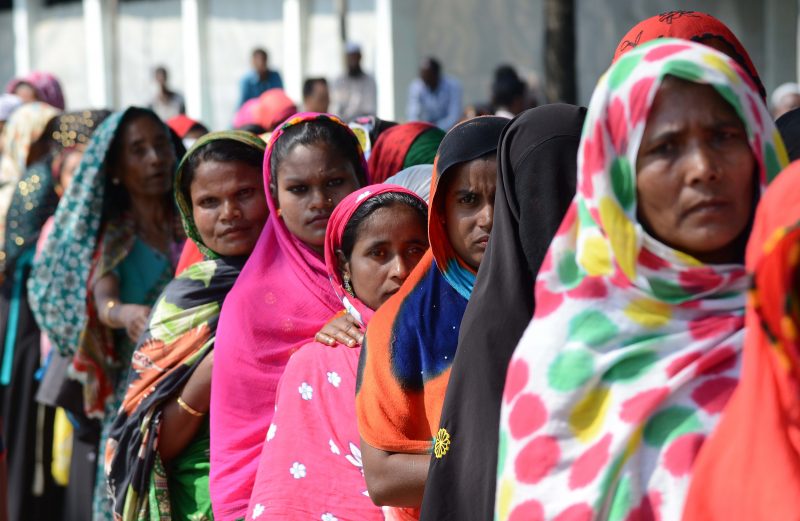The heat is on in India’s mega-election
Some 170,000 polling stations opened for the first day of the election that is set to last almost six weeks, although results will only be announced on May 23 (Biju BORO)
Ghaziabad (India) (AFP) – The sun beat down on Suman Sharma as she joined hordes of people queueing to cast ballots on the first day of India’s mega-election Thursday, with voters putting the country’s leaders under the spotlight.
“I left all my housework to come here because I think every vote counts,” the 50-year-old housewife said as she waited to vote in her home city of Ghaziabad, near the capital New Delhi.
“I want a government that thinks about women and brings down the high prices of rice and lentils.”
Sharma vented her frustration as temperatures headed towards 40 degrees Celsius (105 degrees Fahrenheit) even at 8.00am.
“Cooking gas prices have gone up, sending children to school is expensive. It’s difficult to run the household. I want the new government to think about middle classes,” she grumbled.
Under Indian law, media cannot report which party individual voters backed. But the handling of the economy by right-wing Prime Minister Narendra Modi, whom opinion polls have put as favourite, is one of the key issues.
As separate queues for male and female voters steadily grew, tempers flared when one elderly woman asked if she could wait in the shade. A police officer attracted scorn when he replied she “would not burn if she waited for two minutes in the sun”.
– First vote surge –
Some 170,000 polling stations opened for the first day of the election that is set to last almost six weeks, although results will only be announced on May 23.
Women in multicolour saris pulled out parasols to shade themselves at polling stations across the northeast state of Assam, where authorities said 700,000 people voted in the first two hours in five constituencies.
With two thirds of India’s 1.3-billion population aged under 35, a huge number of first time voters were taking part. In the Assam town of Kaliabar, teenagers took selfies of themselves holding up their ink-stained fingers which proved they had voted.
Twenty-three year-old Anurag Baruah started queueing an hour before the polling station opened in a local school.
“It’s a great feeling to cast the vote,” he said. “I feel part of the democratic system, responsible for electing a good leader who can run the country.”
But in Kashmir, residents of the Himalayan region which has long been in the grip of a violent separatist insurgency shunned the election, while many of those who did vote were critical of the nationalist government in Delhi.
Only one person voted in the first 45 minutes at the Azad Gunj polling station in Baramulla.
About 100 police, paramilitaries and soldiers were visible, with men in riot gear positioned every 50 metres on the nearby road.
A couple of voters agreed to talk, but declined to give their names.
“My conscience normally doesn’t allow me to vote, but I did to stop Modi and his party,” said one man.
Another, a shopkeeper, said: “No one in my family wanted me to vote in an Indian election, but I have come out today to vote against the government and stop their onslaught on Kashmiri people.”
Tight security was also imposed in two constituencies in West Bengal taking part in an Indian national election for the first time.
The districts of Cooch Behar and Alipurduar were former Bangladeshi enclaves in India that were part of a 2015 land swap with the neighbouring country.
Long queues formed outside polling stations. “It is a historic day for the people of these former enclaves,” said a Rabindranath Ghosh a candidate in the contest.
“They are voting for a government for the first time after seven decades of stateless existence,” he declared.
burs/tw/stu/fa
Disclaimer: Validity of the above story is for 7 Days from original date of publishing. Source: AFP.


